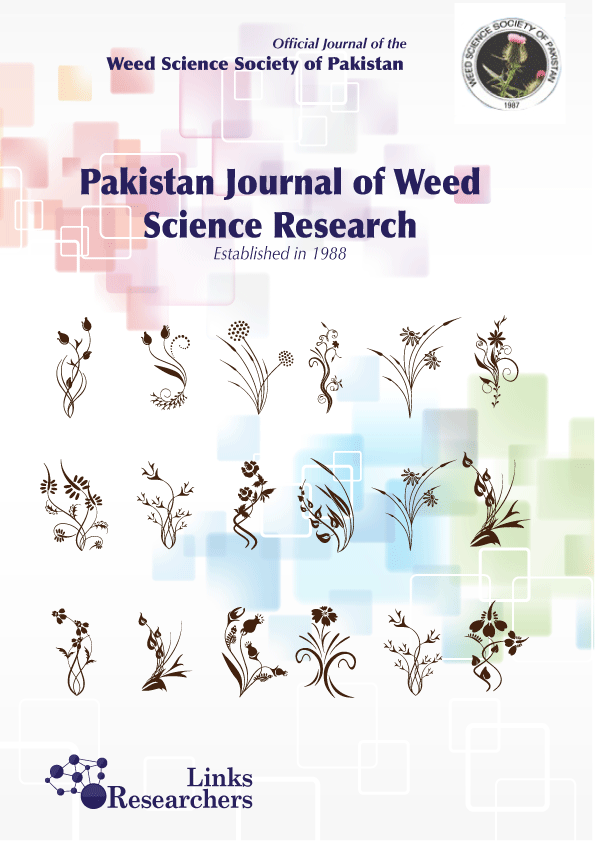Plants release biochemicals into surrounding environment that act as bioherbicide at
high concentration and plant growth hormone at low concentration. Therefore, this study
was planned at the Department of Agronomy in Weed Science Laboratory, University of
Agriculture Faisalabad during Winter 2018 to evaluate the allelopathic effects of A. officinalis
on weed Wild Pea (Pisum sativum subsp. elatius). The experiments were laid out under
completely randomized design (CRD) having three replications. The aqueous extracts of C.
verum. were used on radish and wild pea seeds at different concentrations (2.5%, 5%,
10%, 20%, 40% and 80%). Data regarding seed germination and seedling growth (shoot
length, root length, shoot fresh weight, root dry weigh) of weed were recorded following
standard procedures. Results Reveals that the aqueous extract of A. officinalis at higher
concentration (80%) act as bioherbicide and produced inhibitory effects on R. sativus result
in Maximum time to 50% germination (6.70 days) and mean germination time (10.00 days)
while minimum germination index (4.70), germination percentage (66.60%), shoot length
(49.8 cm), root length (8.16 cm), shoot fresh weight (10.00g) and root fresh weight
(10.361g). While at lower concentration (10%) it shows hermetic effect and produce
maximum germination percentage (90.00%), shoot length (84.7 cm), root length (66.2
cm), shoot fresh weight (82.20 g), root fresh weight (58.30 g) and germination index
(8.21%) minimum time to complete 50% germination (4.33 days) and mean germination
time (5.49 days) growth. In A. officinalis among different phenolic compound minimum
Syringic acid (0.60%) and maximum Quercetion (12.3%) compound was found. Therefore,
it was concluded from this study that aqueous extract of officinalis can be used as growth
promoter at lower concentration as well as at higher concentration for environmentally
friendly control of weeds.




